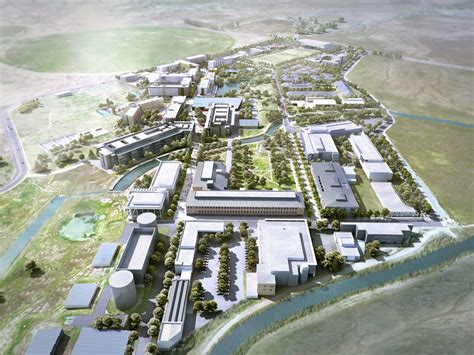The University of California, Merced (UC Merced) is at the forefront of academic and research institutions leveraging artificial intelligence (AI) to tackle global challenges and drive innovation. With its state-of-the-art facilities and a team of renowned AI experts, UC Merced is pioneering the development and application of AI in diverse fields, including healthcare, agriculture, environmental science, and social justice.

AI Research Excellence at UC Merced
UC Merced’s commitment to AI research is evident in its numerous collaborations with industry leaders and its impressive research output. The university has received significant funding from agencies such as the National Science Foundation (NSF), the National Institutes of Health (NIH), and the Department of Energy (DOE) for its cutting-edge AI projects.
Researchers at UC Merced are actively involved in developing new AI algorithms, methodologies, and architectures. They are exploring the potential of deep learning, machine learning, and natural language processing to solve complex problems and make meaningful contributions to society.
Applications of AI in Healthcare
AI is revolutionizing healthcare by enabling the development of new diagnostic tools, treatment methods, and personalized medicine. At UC Merced, researchers are using AI to advance healthcare in various ways, including:
- Early Disease Detection: AI algorithms can analyze vast amounts of patient data to identify patterns and predict the risk of developing diseases at an early stage, allowing for timely intervention and improved outcomes.
- Personalized Treatment Plans: AI can help create customized treatment plans for individual patients based on their unique genetic profile, medical history, and lifestyle factors, leading to more effective and targeted therapies.
- Virtual Health Assistants: AI-powered virtual health assistants provide patients with on-demand access to medical advice, support, and resources, promoting self-care and reducing healthcare costs.
AI in Agriculture and Environmental Science
AI has the potential to revolutionize agriculture and environmental science by providing insights into crop growth, climate patterns, and resource management. UC Merced researchers are harnessing AI to address critical challenges in these fields, such as:
- Precision Farming: AI algorithms can analyze crop data and soil conditions to optimize irrigation, fertilization, and pest control practices, reducing waste and increasing crop yields.
- Climate Modeling: AI can help build accurate climate models by integrating large datasets from weather stations, satellites, and oceanographic sensors, enabling better predictions and adaptation strategies.
- Environmental Monitoring: AI-powered sensors can continuously monitor environmental parameters, such as air quality, water pollution, and wildlife populations, providing real-time data for decision-making and conservation efforts.
AI for Social Justice and Policy Analysis
AI can play a pivotal role in promoting social justice and informing policy decisions. UC Merced researchers are exploring the use of AI to address issues such as:
- Bias Mitigation: AI algorithms can be trained to reduce bias in decision-making, ensuring fairness and equity in areas such as lending, hiring, and criminal justice.
- Policy Evaluation: AI can help analyze policy impact by simulating different scenarios and predicting their consequences, allowing policymakers to make informed decisions based on evidence.
- Disaster Response: AI can improve disaster response efforts by predicting the spread of wildfires, floods, and other natural disasters, enabling timely evacuations and resource allocation.
Strategies for Effective AI Adoption
To ensure the successful adoption of AI across various industries and sectors, UC Merced recommends the following strategies:
- Train a Skilled Workforce: Invest in education and training programs to develop a workforce with the necessary AI skills and knowledge.
- Establish Ethical Guidelines: Develop clear ethical guidelines for the development and use of AI to ensure responsible and fair applications.
- Foster Collaboration: Promote collaboration between academia, industry, and government to leverage diverse perspectives and expertise.
- Provide Infrastructure Support: Establish reliable and accessible computing infrastructure to support AI development and deployment.
Common Mistakes to Avoid
To avoid common pitfalls in AI implementation, consider the following tips:
- Lack of Data Quality: Ensure the quality and availability of data used for AI training to prevent biased or inaccurate results.
- Overreliance on Automation: Recognize that AI is not a substitute for human judgment and decision-making in complex situations.
- Neglecting Ethical Implications: Carefully consider the ethical implications of AI applications and implement measures to mitigate potential biases or risks.
- Ignoring Cybersecurity: Address cybersecurity concerns and implement robust security measures to protect AI systems from attacks and data breaches.
Tables for Enhanced Understanding
| Research Area | Applications |
|---|---|
| Healthcare | Early Disease Detection, Personalized Treatment Plans, Virtual Health Assistants |
| Agriculture and Environmental Science | Precision Farming, Climate Modeling, Environmental Monitoring |
| Social Justice and Policy Analysis | Bias Mitigation, Policy Evaluation, Disaster Response |
| Effective Strategies for AI Adoption |
|—|—|
| Train a Skilled Workforce |
| Establish Ethical Guidelines |
| Foster Collaboration |
| Provide Infrastructure Support |
| Common Mistakes to Avoid in AI Implementation |
|—|—|
| Lack of Data Quality |
| Overreliance on Automation |
| Neglecting Ethical Implications |
| Ignoring Cybersecurity |
Creative Word for AI Idea Generation
Cognitide: A conceptual fusion of “cognition” and “frontier,” representing the boundless possibilities of AI innovation.
Conclusion
UC Merced is a leading institution in the field of AI research and application, driving transformative advances across a wide spectrum of disciplines. By leveraging AI’s immense potential, UC Merced is empowering researchers, industry leaders, and policymakers to tackle global challenges, improve healthcare, protect the environment, and promote social justice. As AI continues to evolve, UC Merced is poised to remain at the forefront of this transformative technology, shaping the future of humanity through innovation and collaboration.
